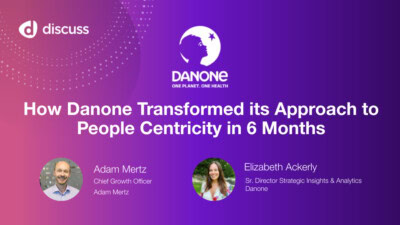Dismantling the Notion of the Business as a “Machine”

I was talking to Mark Earls, author of Copy, Copy, Copy, at the Insights Innovation Exchange (IIeX) in Atlanta when he said something that has sent me on somewhat of a crusade. We were talking about my favorite topic, empathy, and I was expressing my confusion of why there’s such a large disconnect between some businesses and consumers. Central to my confusion: businesses are made up of people who are themselves consumers.
Mark said something that made me stop in my tracks: we live in a culture of business where companies aren’t understood as being made up of individuals, but rather are regarded as “machines.”
This concept is not new. It was born when Henry Ford invented the assembly line in 1913. By training his employees in just one part of the process of making a car, he was able to dramatically reduce costs and time spent on the production of each car. This idea spread like wildfire and is still pervasive today. With this approach, Ford didn’t just disrupt the automotive industry, he changed the course of civilization.
While it’s important to increase efficiencies, this notion of the business as a machine risks making employees feel disconnected and, sometimes, even dehumanized. Charlie Chaplin captured this idea perfectly in his 1936 movie, Modern Times. In the factory work scene, Chaplin plays the part of an assembly line worker. After repetitively tightening a screw, he steps away from the assembly line and he finds that he’s lost control of his own body. He cannot stop repeating the motion even after stepping away. He loses his ability to behave like a human.
While Chaplin may have a flare for the dramatic, he still speaks to an important point. When employees operate in the context of a “machine,” they risk losing context and innate human understanding and behavior.
More than ever before, we live in a world of automation. It’s making us much more efficient, but in the process, we lose human contact. As things in our world become increasingly automated, we crave human connection. Even if it’s between consumer and the businesses that they buy from.
Of course, we should continue to be automate in order to drive efficiencies. However, that needs to be coupled by deepening connection at touchpoints with consumers. In order to drive deep connection, brands need to understand consumers.
When businesses start conversations with the consumers that they serve, they’re better able to empathize with those consumers. Building an empathetic relationship with consumers will allow them to open up more, leading to richer insights. You’re able to understand consumers not as their personas and demographics, or simply through the lens of data analytics, but as people. When you understand consumers’ needs intimately, you’re able to develop products that more directly meet their needs and the marketing campaigns that can impact consumers’ behaviours. This will ultimately affect your ability to drive sales and business growth
Furthermore, by empowering employees to make create these connections and conversations directly, they achieve more context about the purpose behind their jobs. They can directly see their impact and move beyond the narrative of being just a cog in the machine.
Start a conversation with us today to learn more about how to leverage Discuss.io to drive empathy for consumers at your organization.
Ready to unlock human-centric market insights?
Related Articles

3 Ways to Design for Empathy & Human Centricity
By Adam Mertz, Chief Growth Officer at Discuss Introduction I recently had the opportunity to moderate a compelling discussion between…
By Adam Mertz, Chief Growth Officer at Discuss Introduction I recently had the opportunity to moderate a compelling discussion between…

3 Steps to Creating an Intriguing Screener
The reality is that people are busy. They don’t want to take the time to answer screener questions which can…
The reality is that people are busy. They don’t want to take the time to answer screener questions which can…

How to Find the Right Target Audience, Every Time
Recruiting research participants can be one of the most difficult aspects of qualitative projects. But when you do find the…
Recruiting research participants can be one of the most difficult aspects of qualitative projects. But when you do find the…



